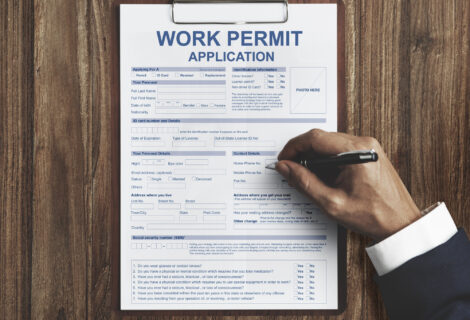Judicial Review in Canada: Types of Appealable Cases
If your immigration application was refused, consider applying for judicial review in Canada. Under Canada’s immigration law, most immigration decisions can be appealed to the Federal Court of Canada. Though, if a person has the right to appeal to the Immigration Appeal Division (IAD), this step should be taken first. If the IAD refuses the appeal, a person then will be allowed to apply for Judicial Review at the Federal Court.
Besides immigration cases that were rejected by the IAD, there is a number of immigration matters which can be directly appealed to the Federal Court.
Judicial Review in Canada: Types of Immigration Matters Appealable to the Federal Court
Work and study permit refusals
Under Canada’s Immigration and Refugee Protection Act, there is no formal right of appealing the negative temporary resident decisions.
Instead, you can either reapply or seek judicial review at the Federal Court of Canada. If there were minor mistakes in your immigration application, you can correct the errors and re-apply for the particular immigration program. In case of serious errors such as misrepresentation or inadmissibility in your application, it is suggested to apply to the Federal Court for judicial review.
More details regarding the deadlines for appealing to the Federal Court.
Citizenship refusals
The most common grounds for citizenship rejections are the lack of physical presence or evidence of establishment in Canada.
It should be noted that citizenship refusals should be filed to the Federal Court within 30 days from the date of receiving a refusal letter.
Residency determination
If the IAD has refused your residency obligation appeal, you will be issued a removal order. It means that you will have to leave Canada. Applying to the Federal Court for leave will automatically put your removal order on hold.
Inland sponsorship refusals
These types of applications for sponsorship can be directly appealed to the Federal Court:
- applications of children who are no longer dependent;
- family members who have not been mentioned in the sponsor’s application for permanent residency
If you have not mentioned a spouse or a child in your application for permanent residency (PR), the only option is to apply for PR based on humanitarian and compassionate grounds.
Deportation orders
The most common reasons for issuing deportation orders are non-compliance with residency obligations, refused sponsorship applications, violation of IRPA or crime-related reasons. You have two options in this situation: appealing the negative decision to the IAD or seeking judicial review at the Federal Court of Canada.
However, people who are found inadmissible to Canada are not eligible for IAD appeal. They are only allowed to apply to the Federal Court. Your deportation will be automatically placed on hold when you apply to the Federal Court.
Failed refugee claims
Failed claimants who are not eligible to apply to the RAD are allowed to apply directly to the Federal Court of Canada. After applying to the Federal Court, you will be allowed to stay in Canada until the Court makes a decision.
Refusals from the Immigration Appeal Division (IAD)
The IAD can refuse your case due to various reasons: non-compliance with the program requirements, inadmissibility, misrepresentation, which lead to negative findings. In these cases, a person can challenge the negative IAD decision at the Federal Court.
The process of appealing the IAD decision to the Federal Court has two stages:
1) You first have to file an Application for Leave and for Judicial Review. It means that you are asking a permission to the Federal Court to have a judicial review hearing. At this stage, it is crucial to follow the deadlines.
2) If the permission is given or “leave granted”, the Federal Court will schedule the date for the Judicial Review hearing.
If you are considering seeking judicial review in Canada, please do not hesitate to contact us to discuss your case.







